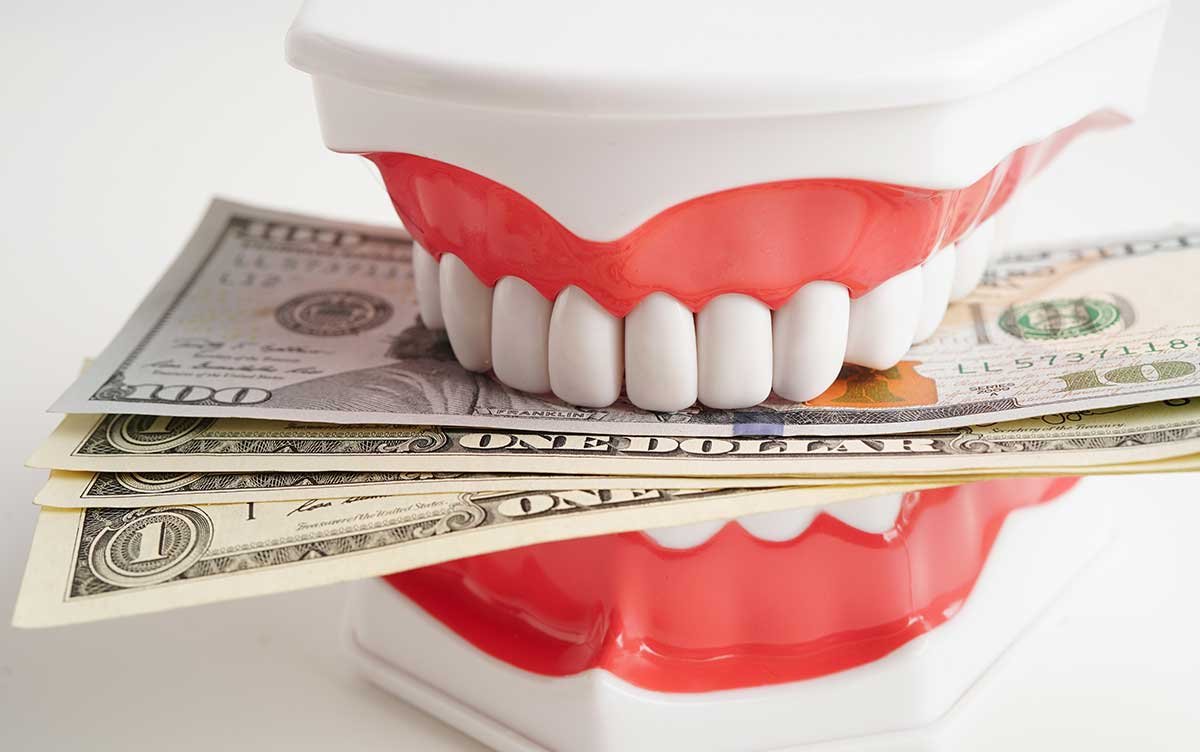Dental Implants Blog: Are you considering getting veneers? Understanding how long they last is crucial. In this article, we will explore the lifespan of veneers, factors that can affect their durability, and tips to extend their longevity. Stay tuned for expert advice and valuable insights from Dr. Implant Dentist.
Longevity of Veneers: Understanding the Lifespan in Dental Implants
Longevity of Veneers: Understanding the Lifespan in Dental Implants
Dental implants have revolutionized the field of dentistry by providing a durable and long-lasting solution for missing teeth. When it comes to enhancing the aesthetics of a smile, veneers are often used in conjunction with dental implants to achieve optimal results.
Veneers are thin shells made of porcelain or composite resin that are bonded to the front surface of the teeth. They can correct a variety of cosmetic issues, such as discoloration, chipped or misaligned teeth, and gaps between teeth.
The longevity of veneers on dental implants depends on various factors. Firstly, the quality of the materials used plays a significant role. Porcelain veneers are known for their durability and resistance to stains, while composite resin veneers may be more susceptible to wear and discoloration over time.
Proper oral hygiene is crucial in maintaining the longevity of veneers on dental implants. Regular brushing and flossing, along with routine visits to the dentist for professional cleanings, help prevent plaque buildup and oral health issues that could impact the lifespan of the veneers.
Additionally, avoiding habits that can damage the veneers, such as biting into hard objects or using teeth as tools, can significantly extend their lifespan. It is also essential to avoid foods and beverages that are known to stain teeth, as this can affect the appearance of the veneers over time.
While dental veneers are designed to be long-lasting, they may require replacement after a certain period. On average, veneers on dental implants can last anywhere from 10 to 15 years. However, with proper care and maintenance, they can potentially last even longer.
In conclusion, understanding the lifespan of veneers on dental implants is vital for patients considering this cosmetic dental procedure. By using high-quality materials, practicing good oral hygiene, and avoiding habits that can damage the veneers, individuals can enjoy the benefits of a beautiful smile for many years to come.
What occurs to the teeth underneath veneers?
When it comes to Dental Implants, veneers are not directly involved. Veneers are thin shells made of porcelain or composite resin that are bonded to the front surface of the teeth to improve their appearance and provide a natural-looking smile.
If a patient has missing teeth and wants to replace them with dental implants, the process is quite different. Dental implants are artificial tooth roots made of titanium that are surgically placed into the jawbone. They act as anchors for replacement teeth, such as crowns or dentures.
Regarding the teeth underneath dental implants, they are not affected in the same way as with veneers. When dental implants are placed, they do not rely on the surrounding teeth for support or stability. Instead, they integrate with the jawbone, providing a strong foundation for the prosthetic teeth.
It’s important to note that if a patient already has veneers on some of their teeth, they can still receive dental implants for missing teeth without affecting those veneers. The implant placement process is performed carefully to avoid any damage to existing dental work.
In summary, dental implants are used to replace missing teeth and do not directly impact the teeth underneath veneers. They provide a stable and long-lasting solution for tooth replacement, while veneers are primarily used for cosmetic improvements to the front surface of the teeth.
Are cavities possible with veneers?
No, cavities are not possible with veneers. Veneers are thin shells made of porcelain or composite resin that are bonded to the front surface of teeth to improve their appearance. Unlike natural teeth, veneers do not have the same enamel layer that can be affected by dental caries (cavities). However, it is still important to maintain good oral hygiene practices such as regular brushing, flossing, and dental check-ups to ensure the health and longevity of both the veneers and the underlying teeth.
What are the disadvantages of veneers?
Disadvantages of veneers:
1. Irreversibility: Veneers require the removal of a small amount of enamel from the natural teeth, making the process irreversible.
2. Sensitivity: Some patients may experience temporary or permanent tooth sensitivity after getting veneers, especially to hot or cold temperatures.
3. Risk of damage: Although veneers are durable, they can still be damaged or chipped if subjected to excessive force such as teeth grinding or biting on hard objects.
4. Color mismatch: While veneers are custom-made to match the desired shade, they may not perfectly match the surrounding natural teeth, leading to a color discrepancy.
5. Potential for decay: The underlying tooth structure beneath the veneer is still susceptible to decay and cavities. Adequate oral hygiene practices and regular dental check-ups are essential to maintain good oral health.
6. Cost: Veneers can be expensive, depending on the material used and the number of teeth being treated. Insurance coverage for veneers may also be limited.
7. Not suitable for severe tooth damage: Veneers are not recommended for cases where the natural tooth structure is severely damaged or decayed. In such cases, dental implants may be a more appropriate solution.
It is important to consult with a qualified dentist or prosthodontist to assess individual needs and determine the most suitable treatment option.
How frequently should veneers be replaced?
Veneers are typically made of thin porcelain or composite resin and are adhered to the front surface of teeth to improve their appearance. Unlike dental implants, veneers do not involve replacing missing teeth but rather enhance the aesthetics of existing ones. The lifespan of veneers can vary depending on various factors.
In general, veneers can last for approximately 10-15 years. However, this is not a fixed timeline, and their durability can be influenced by several factors such as oral hygiene practices, diet, oral habits, and the material used for the veneers.
Good oral hygiene practices, including regular brushing, flossing, and dental check-ups, are essential for maintaining the longevity of veneers. Abrasive toothpaste and excessive force when brushing can cause damage to the veneer’s surface over time. It is recommended to use non-abrasive toothpaste and a soft-bristle toothbrush.
Dietary habits can also impact the lifespan of veneers. Avoiding biting into hard objects, such as ice or nails, and refraining from chewing on non-food items like pens or pencils, can help prevent damage to the veneers.
Oral habits such as teeth grinding or clenching, known as bruxism, can significantly reduce the lifespan of veneers. If you have bruxism, your dentist may recommend wearing a nightguard to protect both your natural teeth and veneers while you sleep.
Lastly, the material used for the veneers can influence their longevity. Porcelain veneers are generally more resistant to staining and discoloration compared to composite resin veneers. However, both types of veneers may require replacement or repair over time due to wear and tear.
In conclusion, while veneers can last a significant amount of time with proper care, they may eventually need to be replaced after 10-15 years. Regular dental visits and good oral hygiene practices are crucial in maintaining the lifespan of veneers.
Frequent Questions
How long do dental implants typically last compared to veneers?
Dental implants typically last much longer compared to veneers. While veneers may need to be replaced every 10-15 years, dental implants can last a lifetime with proper care. Implants are made of durable materials such as titanium that integrate with the jawbone, creating a strong foundation for the replacement tooth or teeth. Veneers, on the other hand, are thin shells placed on the front surface of the teeth to improve their appearance. Although veneers can provide aesthetic benefits, they are not designed to last as long as dental implants. It’s important to note that the longevity of both dental implants and veneers can be influenced by factors such as oral hygiene, regular dental check-ups, and lifestyle habits.
What factors can affect the lifespan of dental implants in comparison to veneers?
Several factors can affect the lifespan of dental implants compared to veneers:
1. Implant Integration: Dental implants are surgically placed into the jawbone, where they fuse with the surrounding bone through a process called osseointegration. The success of this integration determines the long-term stability and longevity of the implant. If the implant fails to integrate properly, it may lead to implant failure.
2. Oral Hygiene: Maintaining good oral hygiene is crucial for the longevity of both dental implants and veneers. However, implants require regular brushing, flossing, and professional cleanings to prevent peri-implantitis, an inflammatory condition that can lead to implant failure. Veneers, on the other hand, do not require additional maintenance beyond regular oral hygiene practices.
3. Bite Force: Dental implants are designed to withstand normal biting and chewing forces. Excessive or improper bite forces, such as teeth grinding or clenching, can put stress on the implant and compromise its longevity. Veneers, being thin shells bonded to the front surface of teeth, are not directly involved in bite force transmission.
4. Quality of Materials: The quality of materials used in dental implants and veneers can also affect their lifespan. High-quality implants made from biocompatible titanium alloy have shown better long-term success rates. Similarly, veneers made from durable and stain-resistant materials like porcelain or zirconia tend to last longer.
5. Oral Habits: Certain habits, such as smoking or using tobacco products, can negatively impact the lifespan of both dental implants and veneers. These habits can contribute to gum disease, bone loss, and implant failure over time.
In conclusion, while both dental implants and veneers can provide long-lasting solutions for dental problems, dental implants may have a longer lifespan depending on factors such as proper integration, oral hygiene, bite force management, quality of materials used, and avoidance of detrimental oral habits.
Are dental implants a more durable and long-lasting solution for tooth restoration compared to veneers?
Dental implants are indeed a more durable and long-lasting solution for tooth restoration compared to veneers. While veneers are thin shells that are bonded to the front surface of the teeth to improve their appearance, dental implants are artificial tooth roots that are surgically placed into the jawbone and function as a strong foundation for replacement teeth.
Dental implants are made of biocompatible materials like titanium, which fuse with the jawbone through a process called osseointegration. This ensures a stable and secure fit, similar to natural teeth. In contrast, veneers are more prone to chipping or cracking over time and may require replacement after several years.
Furthermore, dental implants can last a lifetime with proper care and maintenance, making them a more cost-effective option in the long run. On the other hand, veneers typically have a lifespan of around 10-15 years before they need to be replaced.
It’s important to note that the suitability of dental implants vs. veneers depends on the individual case. Dental implants are typically recommended for patients with missing teeth or significant tooth damage, while veneers are ideal for those looking to enhance the appearance of their teeth without major structural issues.
In summary, dental implants provide a more durable and long-lasting solution for tooth restoration compared to veneers. They offer a natural look and feel, excellent stability, and can last a lifetime with proper care. However, it’s essential to consult with a dental professional to determine the best treatment option for your specific needs.
In conclusion, veneers can provide a long-lasting solution for enhancing the appearance of your teeth. On average, they can last up to 10-15 years with proper care and maintenance. However, it is important to note that their lifespan may vary depending on various factors such as oral hygiene practices, biting forces, and overall dental health. Regular dental check-ups and professional cleanings are crucial to ensuring the longevity of your veneers. If you are considering getting veneers, consult with a qualified dental implant specialist to determine the best treatment plan for your individual needs. Remember, investing in good oral care habits can significantly extend the lifespan of your veneers, allowing you to enjoy a beautiful smile for years to come.



